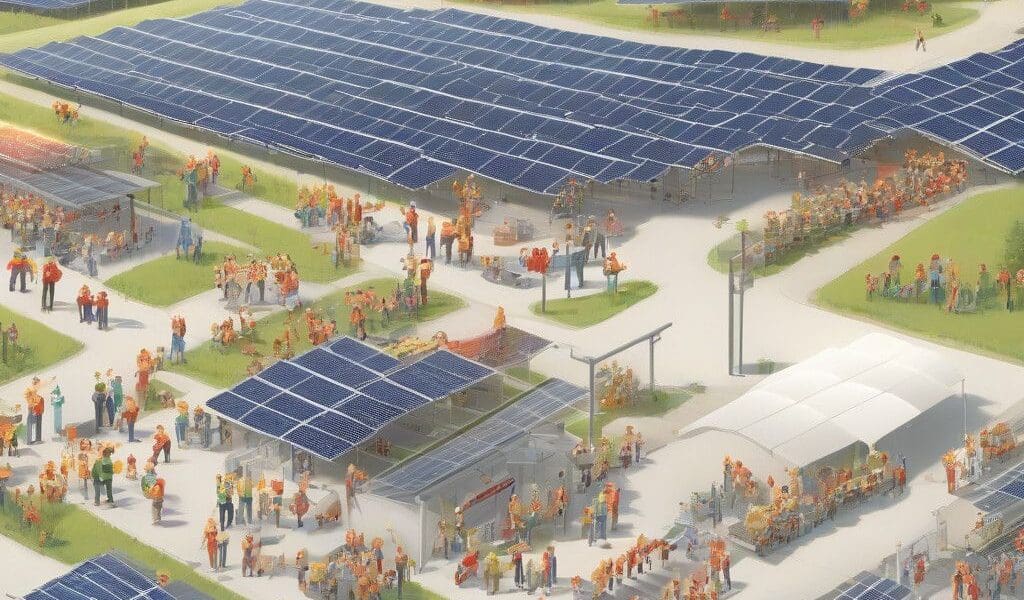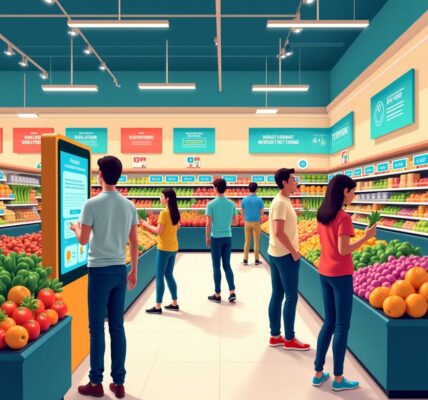Hy-Vee Inc., a major player in the grocery retail sector, has taken a significant step towards sustainability with the launch of its Hy-Vee Chariton Solar Field in Chariton, Iowa. This project, which is a collaboration with Alliant Energy, marks the company’s commitment to renewable energy efforts, poised to generate enough electricity annually to power approximately 360 households.
Steven Venegas, Executive Vice President of Supply Chain and Transportation for Hy-Vee, expressed enthusiasm for the project, highlighting the company’s continuous focus on sustainability. He stated, “This new solar field project is incredibly exciting in that it represents a more sustainable energy future for Hy-Vee.” This venture symbolizes not just an energy shift for the retailer but also an opportunity to partner with various organizations aimed at fostering a sustainable energy future for the communities Hy-Vee serves.
In addition to the solar project, the partnership will include an innovative on-site apiary. Funded by both Hy-Vee and the Alliant Energy Foundation, and initially operated by researchers from Iowa State University, this apiary serves as an educational hub. It will enable studies on how native plants can contribute to the sustainability of bee colonies, which are crucial for the ecosystem. Local resources will manage the apiary in the future, reinforcing community involvement.
Hy-Vee’s efforts don’t stop here. The company is also piloting a fleet of 30 electric refrigerated trailers designed for transporting perishable goods to its Iowa stores. These trailers utilize electric power instead of diesel fuel. This transition results in quieter operations and a significantly reduced environmental footprint, enhancing the overall efficiency of Hy-Vee’s supply chain. Mayuri Farlinger, President of Alliant Energy’s Iowa operations, praised Hy-Vee for its leadership in sustainability, underscoring the significance of such initiatives in building stronger communities.
Hy-Vee itself is a substantial player in the grocery business, operating over 570 stores across eight Midwestern states and reporting sales exceeding $13 billion annually. The firm ranks 38th on the PG 100 list of the top food and consumables retailers in North America, published by Progressive Grocer.
The ripple effects of Hy-Vee’s initiatives showcase a broader shift in the retail industry towards sustainable practices. As consumer awareness regarding environmental impacts grows, businesses that prioritize sustainability are likely to foster stronger customer loyalty. Not only do these projects benefit the environment, but they also improve operational efficiency and elevate brand perception.
Implementing sustainable practices, as demonstrated by Hy-Vee, can lead to several advantages. For retailers, the use of renewable energy sources helps mitigate fluctuations in energy costs and reduces dependency on fossil fuels. Projects like the Chariton Solar Field serve as a model for other retailers aiming for a more sustainable operation within their supply chains.
Moreover, as customers increasingly favor brands that demonstrate environmental responsibility, adopting eco-friendly practices sets businesses apart in the competitive landscape. A survey by Nielsen revealed that 75% of millennials are willing to pay more for sustainable brands, a substantial demographic driving market trends.
In summary, Hy-Vee’s collaboration with Alliant Energy and the implementation of innovative projects such as the solar field and electric refrigerated trailers is a powerful example of how retail businesses can lead the charge in sustainable practices. The ripple effects from these efforts highlight both environmental benefits and economic opportunities for growth within the food retailing sector.
As more companies recognize the value of sustainability, these initiatives reflect a forward-thinking approach that aligns corporate strategy with the rising expectation of consumers for responsible business practices.












